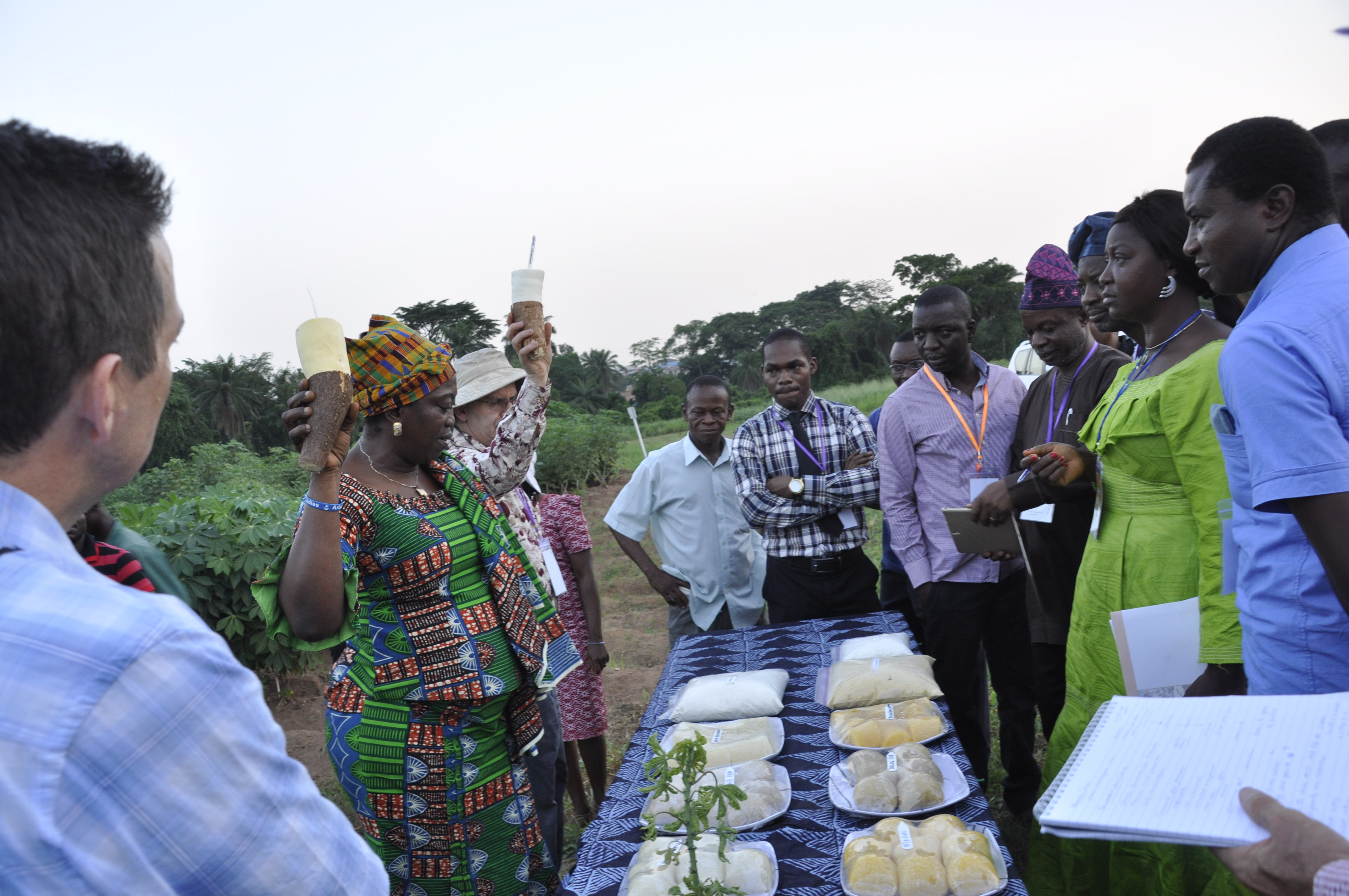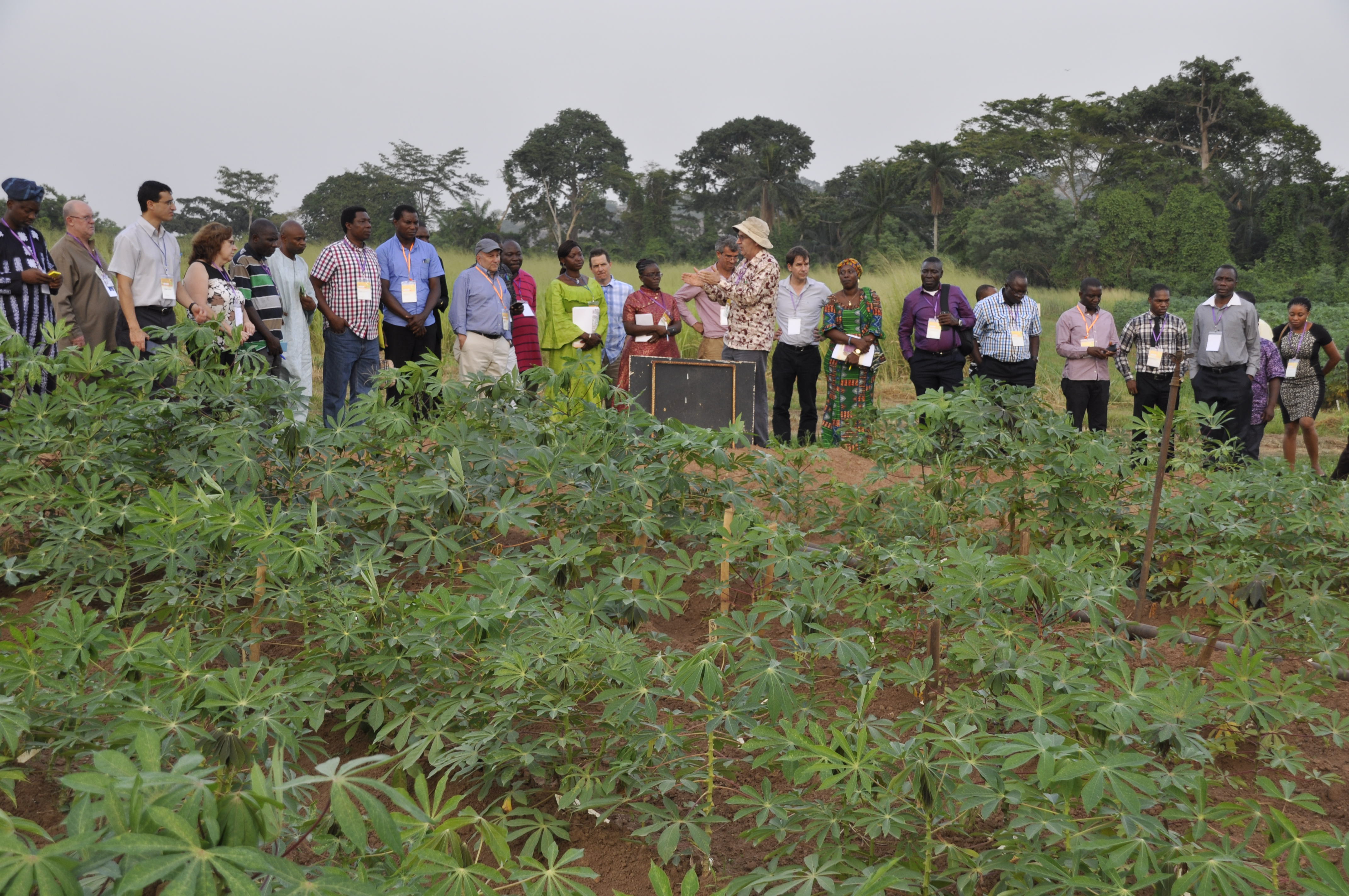In Nigeria, the world’s largest cassava producer, a proposed project, the first of its kind, will develop an economically sustainable seed system for cassava that can grow and supply farmers with new varieties. This was the focus of a discussion among stakeholders from the private and public sectors, National Root Crops Research Institute (NRCRI), the National Agricultural Seed Council, research institutes and scientists that was held at the IITA Conference Center in Ibadan, 27-28 April.
Dr Clair Hershey, leader of the International Centre for Tropical Agriculture (CIAT) cassava program, explained that for cassava, the word seed refers to the “small stem cuttings used to propagate the crop each growing season.” He added, “The seed system starts from plants in tissue culture in the laboratory to the production of breeder seeds which will then be multiplied to produce foundation seeds and finally to be multiplied by commercial seed producers for farmers to get good quality seeds of their preferred varieties.”

Dr Elizabeth Parkes and Dr Peter Kulakow show a range of finished products from both the white and yellow-fleshed cassava varieties to workshop participants during a field tour.
Currently, the seed system is a big constraint to farmers and industries in getting the varieties they need. Developing the seed system became necessary in the light of the “various opportunities being missed in reaching out to small- and large-scale cassava farmers, the distribution of new genetic materials, and improvement of the crop across the entire value chain.” said Dr Claude Fauquet, Director of the Global Cassava Partnership for the 21st Century.
“Today,” continued Dr Fauquet, “there are no commercial seed systems available in the world for cassava. No one is currently able to go to designated spots and purchase cassava stem cuttings if s/he desires to establish a new business. It simply does not exist.”
This project therefore seeks to address this challenge by establishing a sustainable mechanism to ensure that both commercial and small-scale farmers and industries continuously pay the correct price to buy and have access to quality, certified seeds of the right varieties to improve their production.
The project will be championed under the CGIAR Research Program on Roots, Tubers and Bananas (RTB) and focus will be on major cassava-growing regions of Nigeria.

Dr Peter Kulakow (in front, wearing a hat) talks about the field operations and breeding procedures for the cassava seed system.
Farmers will get better income and higher yields from the initiative, but they will not be the only participants. Cassava processors will also be able to grow their businesses and gain access to higher yielding varieties as raw materials for their products through the seed system.
“People will make money all along the value chain,” said Dr Graham Thiele, Director, CGIAR RTB Program. He continued, “Our vision for the future is to unleash the entrepreneurial potentials of Nigerians and make this a functioning initiative for producers, processors, and consumers of cassava in Nigeria.”
The proposed project will be led by RTB with major project roles for NRCRI, CIAT, CIRAD, contact network IITA, and other partners, in collaboration with Bioversity International, CIAT, and CIP. Funds from the Bill & Melinda Gates Foundation will drive the initiative which will start in 2016.
Upon implementation, lessons from this initiative will be exported to benefit other African countries and Asia as well.

No Comments